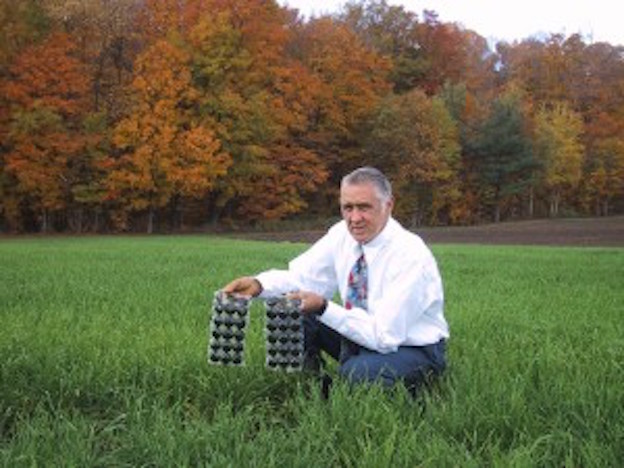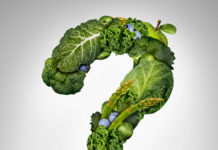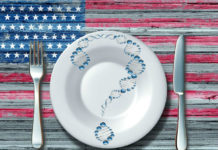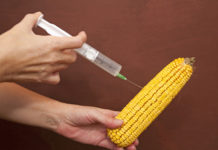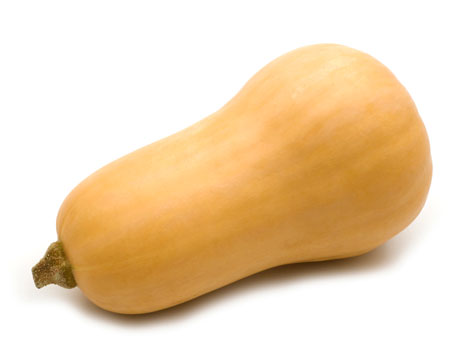With the change of seasons, winter vegetables are beginning to be more prominent at farmer’s markets. For many, Fall is their favorite season — the crisp weather, the beautiful leaves and their favorite foods — like pumpkins or butternut squash!
Squash has high levels of carotenes and has built in anti-cancer benefits. Studies show carotenoid concentrations in the blood are biomarkers of fruits and vegetables that offer cancer protection. One study concluded that beta-carotene intake was strongly associated with reduced breast cancer risk. (1)
Beta-carotene intake strongly associated with reduced breast cancer risk!
Beta-carotene is an antioxidant that prevents cell damage from aging and exposure to pollutants. Studies show that not only can beta-carotene protect against cancer and heart disease but can also help improve your vision, immune system and skin.(2)
The body uses beta-carotene to form as much Vitamin A as the body needs and then additional beta-carotene acts as an antioxidant and supports cell to cell communication that controls healthy cell growth. (2)
 Let’s not forget the squash seeds! For many people, roasting the seeds is just as important as the squash recipe they are making. These seeds provide dietary fiber and unsaturated fatty acids along with protein, minerals and vitamins. The seeds also contain tryptophan which helps regulate blood glucose in the body. (1)
Let’s not forget the squash seeds! For many people, roasting the seeds is just as important as the squash recipe they are making. These seeds provide dietary fiber and unsaturated fatty acids along with protein, minerals and vitamins. The seeds also contain tryptophan which helps regulate blood glucose in the body. (1)
Butternut squash is a favorite in many households. One cup of cooked butternut squash contains 82 calories, 0 grams of fat, 22 grams of carbohydrate, and 1.8 grams of protein. This same cut provide 437 percent of your vitamin A needs, and 52 percent of vitamin C. It is also a good source of vitamin E, thiamin, niacin, vitamin B-6, folate, pantothenic acid, magnesium, and manganese. If you are looking for options to increase your potassium levels, butternut squash is a great option containing more potassium than a banana! (3)
High potassium intake is associated with a 20 percent decreased risk of dying from all causes!
Potassium is important because it helps maintain a healthy blood pressure. The National Health and Nutrition Examination Survey reported that less than 2 percent of adults in the U.S. meet the daily potassium recommendation. It is also important to note that high potassium intake is associated with a 20 percent decreased risk of dying from all causes, so no need to worry about getting too much potassium! (3) 
The beta-carotene in butternut squash can also lower your risk for developing asthma! Other studies show that beta-carotene has an inverse association with colon cancer. A Harvard study found that younger men who consume diets rich in beta-carotene had a lower risk of prostate cancer. (3)
Diabetes is becoming a nationwide epidemic. Type 1 diabetics who consume high fiber diets have lower overall blood sugar levels, whereas type 2 diabetics have improved blood sugar, lipids, and insulin levels. Just one cup of butternut squash contains 6.6 grams of fiber and can help manage blood sugar for type 2 diabetics.(3)
Butternut squash increases sebum production to protect against dry skin and broken or damaged hair!
Who doesn’t want healthy skin and hair? People spend big money to achieve these desires. You can save a lot of money on cosmetic treatments and put that money into your food! Butternut squash is great for your skin due to its high vitamin A content. Vitamin A is needed for sebum production and can help fight off winter dry skin and hair! Since butternut squash is also a good source of vitamin C, this also contributes to building and maintaining collagen levels that provide structure to the skin and hair! (3)
High fiber does more than help maintain blood sugar but also helps promote a healthy digestive tract. Studies have shown that dietary fiber may decrease inflammation and improves immune function. It also decreases the risk of inflammatory diseases such as cardiovascular disease, diabetes, cancer, and obesity. (3)
With the change of seasons becomes the conversation of flu shots. If you choose to bypass the flu shots, which are often shown to be ineffective anyway, consider plant foods such as butternut squash to help keep the flu at bay. Butternut squash offers a powerful immunity boost due to its nutrient and fiber profile. (3)
If you are not a fan of butternut squash or other types of squash, you can still get ample beta-carotene in other foods. Choose bright orange fruits and vegetables such as sweet potatoes, carrots, red bell peppers, cantaloupe, apricots, papayas and mangoes. There are also green vegetables that are great sources of beta-carotene such as broccoli! When preparing these foods it’s best to add a healthy oil to the food because beta-carotene is a fat-soluble vitamin, meaning the fat will increase vitamin absorption! (2)
By Matthew Monarch, November, 2015
Proprietor, theRawFoodWorld.com
Sources:
- http://foodfacts.mercola.com/squash.html
- http://preventcancer.aicr.org/site/News2?page=NewsArticle&id=19609
- http://www.medicalnewstoday.com/articles/284479.php
Butternut Squash Salad with Orange-Cranberry Dressing
– 1 butternut squash (about 1.5 lbs.), peeled & seeded
– 1/2 cup dried cranberries
– 3/4 cup fresh squeezed orange juice
– 1 tablespoon minced ginger
– 3 tablespoons olive oil
– 1 tablespoon honey
– Salt
– Black pepper
- Combine cranberries, orange juice, oil, honey, ginger, salt and pepper and let sit for 1 hour hour while occasionally stirring.
- Grate squash in food processor.
- Pour dressing over squash and let sit at room temperature for 30 minutes before serving to allow flavors to mix.
Also Read:




